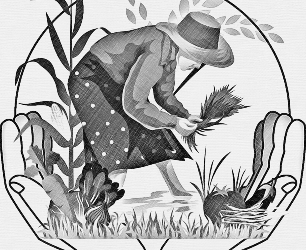All viruses evolve over time. When a virus reproduces, it occasionally changes a bit called mutations. A virus with one or more new mutations is referred to as a “variant” of the original virus.
When a virus is widely circulating in a population and causing many infections, the probability of the virus transforming, increases. The more opportunities a virus has to spread, the more it replicates – and the more chances it has to undergo variations.
There are thousands of different types – or variants – of Covid circulating across the world. One of them, known as Delta or B.1.617.2, appears to be spreading quickly in United Kingdom and other countries, where it has become the dominant variant.
Other current variants of concern include Alpha (B.1.1.7), Beta (B.1.351) first identified in South Africa and Gamma (P.1) first identified in Brazil.
The COVID-19 vaccines are expected to provide some protection against new variants because these vaccines extract a broad immune response and resistance involving a range of antibodies. Therefore, changes or mutations in the virus should not make vaccines incompetent, but rather they are dependable safeguards against the new variants.
The World Health Organization (WHO) is working with scientist, researchers and health officials to be familiar with these new variants, while we are still in the process of learning more about these new COVID-19 variants.
Stopping the spread of the disease at the source remains key. Current measures to reduce transmission – including frequent hand washing, wearing facemasks and face shields, physical distancing, good ventilation and avoiding crowded places especially in closed settings and venues, and strict observance to basic safety protocols – continue to work against new variants by reducing the amount of viral transmission and therefore also reducing chances for the virus to mutate.
Scaling up vaccine manufacturing and rolling out mass vaccinations as quickly and widely as possible will be decisive and significant ways of protecting people before they are exposed to the risk of new variants. Our government should prioritize vaccinating high-risk groups everywhere to maximize protection against new variants and minimize the risk of transmission. Furthermore, ensuring justifiable access to COVID-19 vaccines is more critical than ever to address the evolving pandemic. As more people get vaccinated, we expect virus transmission to decrease drastically, which will then lead to less mutations.
The general public should be made aware that COVID-19 vaccines are a critical tool in the battle against the disease and the pandemic, and there are clear public health and lifesaving benefits to using the tools we already have. We must not delay or postpone getting vaccinated because of our concerns about new variants, but rather we must proceed with vaccination immediately. We are all safe only if everyone is safe.



















Discussion about this post